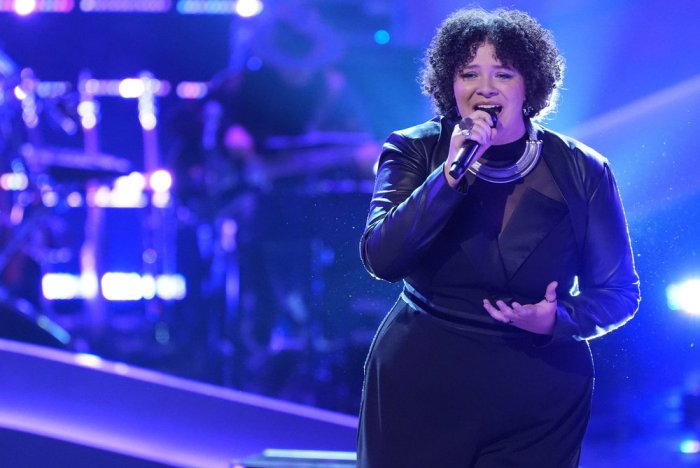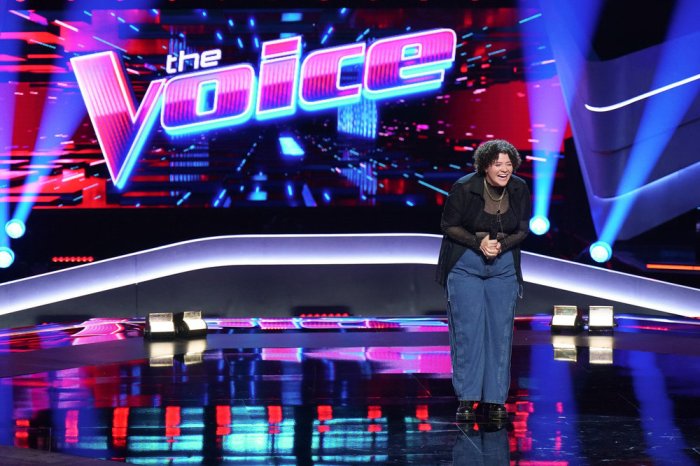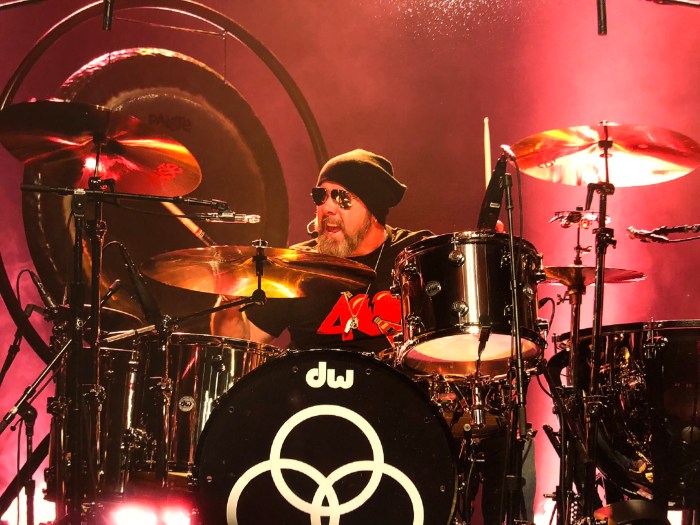
Bruce Hornsby is an artist who never ceases to surprise music lovers. Casual fans may know him for his mellifluous piano playing via early hits like “The Way It Is,” “Mandolin Rain” and “The Valley Road.”
Or for his work with peers like Huey Lewis and Don Henley, who replicated Hornsby’s sound on “Jacob’s Ladder” and “The End of the Innocence,” two songs the Virginia native wrote and/or played on.
For anyone who has followed the lanky musician’s career since he hit the scene with his smash 1986 debut The Way It Is, the journey has taken him into extensive forays into collaborating like touring with the Grateful Dead and casting his creative net wider by incorporating jazz and Americana influences into an already unorthodox pop approach. So while his most recent album finds him once again enlisting The Noisemakers to continue his fascination with bluegrass, the big pivot is that the material that makes up 2016’s Rehab Reunion finds Hornsby trading in his piano for a dulcimer the entire way through. The seed for wanting to explore this type of resonator guitar was initially planted in the mid-1990s.

“This album has been coming ever so gradually since about 1996 when I bought a dulcimer at the Galax Old-Time Fiddler’s Convention,” Hornsby recalled. “The instrument started making small appearances on several of my records from 1998’s Spirit Trail on. Three years ago, [songwriting collaborator] Chip deMatteo and I had a month-long jag where we wrote three songs, and I wrote one alone, and after that month it became clear that it was time to make this record.”
The end result is 10 songs recorded over a 10-month period “…in between lots of touring and Spike Lee film scoring.” They range from the gently rocking country music-flavored title cut that grapples with sobriety, and the dobro-soaked musings of Hornsby’s college days that make up “M.I.A. in M.I.A.M.I.” to “Tropical Cashmere Sweater,” a Band-like number that he cowrote with Dead lyricist Robert Hunter. There’s even a reworking of “The Valley Road” that wouldn’t sound out of place on a Sam Bush record. Also notable are appearances by Justin Vernon of Bon Iver and storied vocalist Mavis Staples on “Over the Rise” and “Celestial Railroad” respectively. The latter song in particular was a number whose roots date back to the early 1990s.
“I wrote ‘Celestial Railroad’ back in 1991 or so, and thought maybe the Staples Singers would be interested in recording it. Through Bonnie Raitt, the song got to the group, they liked it and started working on it. Nothing came of it, although I met Mavis backstage in ‘94 at Poplar Creek Amphitheatre in Chicago and she started singing the song to me. That, of course, was quite a moment,” he recalled. “When we started making this record I thought ‘Celestial’ would fit in, and I got in touch with Mavis after all these years and asked her to sing a duet with me on this old song. She got back to me quickly with a yes, and I went to Chicago to record her. We had a great time and a lot of laughs and of course, she sang it so great.”

Even though Hornsby started out at the age of 7 taking piano lessons in a funeral parlor, he spent most of his formative years playing guitar and being more of a jock than a musician. Initially influenced by the likes of Elton John and Leon Russell via Tumbleweed Connection and Mad Dogs and Englishmen respectively, Hornsby eventually found inspiration in the work of numerous pianists including Keith Jarrett, Bill Evans, Dr. John, Professor Longhair, McCoy Tyner, Chick Corea and Bud Powell along with modern classical music composers Elliott Carter, Arnold Schoenberg, Anton Webern, Olivier Messiaen and Gyorgy Ligeti.
After a year at a liberal arts college, he realized he needed to “…cast my lot with the musos, the musicians.” After a year-long stint at the Berklee College of Music, he transferred and eventually graduated from the University of Miami. Taking a page out of the Horace Greeley playbook and headed west to Los Angeles with his brother and songwriting partner John. Before heading back to his native southeastern Virginia, Hornsby spent time as a session musician that included a stint in 1980s pop singer Sheena Easton’s backup band. It’s a time he looks back at humorously.
“I find it funny and fairly comical. I embrace my sordid lounge-sideman past,” he admitted. “My son Keith just finished his college basketball career as a starter for the LSU Tigers, and whenever he would have a tough game and be despondent about it, I would tell him to watch me on Sheena’s ‘Strut’ and ‘Sugar Walls’ videos. Since I look hilarious in them, it always picked up his spirits to sit there and laugh his ass off at my amazing screen presence.”
Nearly four decades after he started out, the music industry has devolved into something that is practically unrecognizable. It’s certainly the case for an older artist who once enjoyed pop chart success. And while his current tour finds Hornsby leaving the dobro at home and flying solo on the piano, he’s been incorporating a dulcimer repertoire into his sets when traveling with a full band. That said, the mission remains the same as does his view about what’s going on in the creative landscape.
“There’s lots of fantastic music being made today, interesting and innovative, and for me most of it resides in the margins, under the mainstream radar screen,” he said. “It’s still about the same thing- finding your own individual, unique voice stylistically, as a writer, instrumentalist and singer, and creating something original that reaches and moves people deeply.“
Bruce Hornsby will appears solo on Oct. 22 at the Adelphi University Performing Arts Center (AUPAC) Concert Hall, 1 South Ave., Garden City. For more information, visit aupac.adelphi.edu or call 516-877-4000.






























